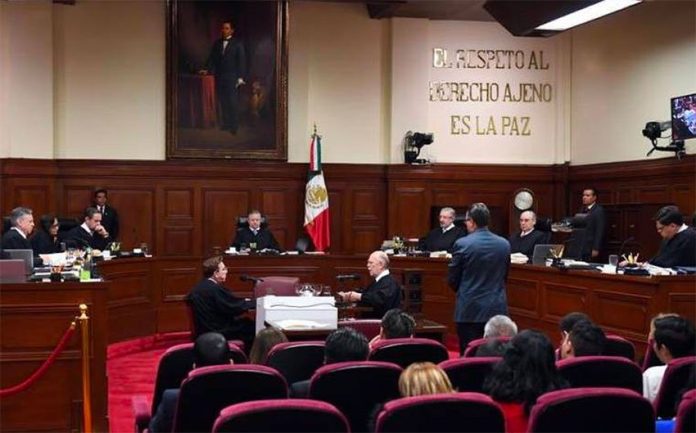The Supreme Court (SCJN) has ruled that it is unconstitutional for federal law enforcement authorities to request the bank records of accused criminals without a court order.
With six magistrates voting in favor and five against, the court determined that article 142 of the Credit Institutions Law – which allows the federal Attorney General’s Office (FGR) to obtain the financial records of suspected criminals – violates people’s constitutional right to privacy.
The ruling leaves thousands of cases pursued by the FGR, including those against former Pemex CEO Emilio Lozoya and ex-governors, hanging by a thread, the newspaper Milenio said.
The SCJN will sit again Monday to determine whether its decision will apply retroactively or only to future cases.
Some justices warned that depriving the FGR of its capacity to seek and obtain bank records will place money laundering, tax fraud and organized crime investigations at risk.
“The consequences that the establishment of this ruling might have concerns me,” said Jorge Mario Pardo Rebolledo.
Once the court’s ruling is formally pronounced, he said, financial evidence held by the FGR will “automatically” become “illegal – all the information, all the requests for bank information on which investigations are being processed.”
“. . . The Supreme Court must . . . be sensitive to the consequences of the judgements that it is establishing,” Pardo said.
Eduardo Medina Mora acknowledged that the right to privacy is of the utmost importance but argued that the right should be superseded when federal authorities are investigating crimes such as tax fraud, money laundering, terrorism or organized crime.
However, six judges including Chief Justice Arturo Zaldívar Lelo de Larrea didn’t share his view.
“There is something that is very important – at least for me – to take into account. The seriousness of the crime, the seriousness of the situation doesn’t excuse non-compliance with the constitution. The fight against crime must respect the constitution and human rights,” Zaldívar said.
“. . .I don’t think that being more relaxed with constitutional requirements is the right path for a constitutional court or for a democratic constitutional system. . .”
Source: Milenio (sp)
